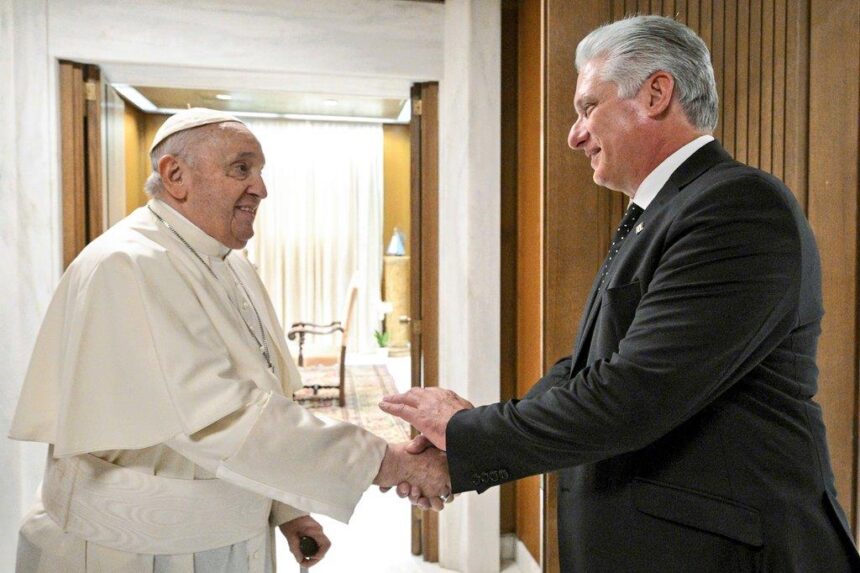The Cuban government has announced a significant move, one that could mark a turning point in the country’s relations with the international community: the release of 553 prisoners. This decision came following talks with the Vatican, and just hours after, the Biden administration said it would loosen a host of sanctions on the island.
Cuban President Miguel Diaz-Canel conveyed the message to the Supreme Pontiff on Tuesday, informing him of the resolution to release 553 individuals found guilty of different offenses.
The Cuban Presidency, in a statement, said, and I quote: “As part of the dynamic relations with the Vatican State, the Cuban government has maintained communication with Pope Francis and his representatives and, as in the past, has informed His Holiness about processes of review and release of persons deprived of liberty, a practice that is common in our justice system and that has characterized the humanitarian trajectory of the Revolution.”
On Tuesday, days before leaving office, outgoing US President Joe Biden announced his removing Cuba from the State Sponsors of Terrorism list, a designation that severely restricted the island’s trade and economy for the last four years.
The easing of sanctions by the Biden administration has been seen as a positive gesture towards Cuba and potentially could be a significant breakthrough in the bilateral relationship between the US and Cuba. However, President-elect Donald Trump may choose to reverse the decisions when he assumes office on January 20.
Donald Trump put Cuba on the state sponsor of terrorism list during his first term, and his administration restored sanctions and restrictions on travel to Cuba.
While the release of 553 prisoners is a welcome development, it raises questions about the broader implications for democracy and human rights in Cuba. Critics argue that the move, though significant, does not address the underlying issues of political repression and limited freedoms. The Cuban government still maintains strict control over the media, assembly, and speech, prompting concerns that the release of prisoners may be more of a strategic move to appease international critics rather than a genuine step toward democratization.
As Cuba navigates its path toward a more open and democratic society, the support and engagement of international partners, including the Vatican and the US, will be crucial in encouraging meaningful change.















